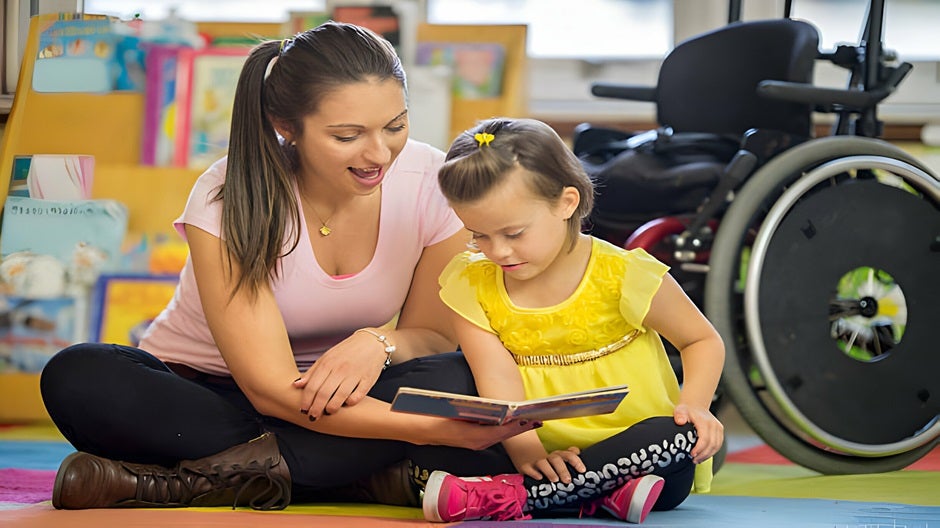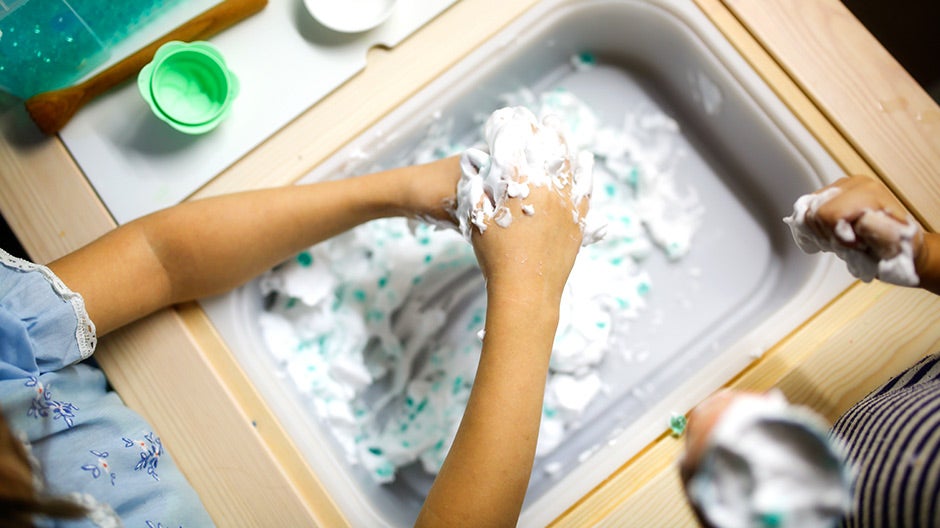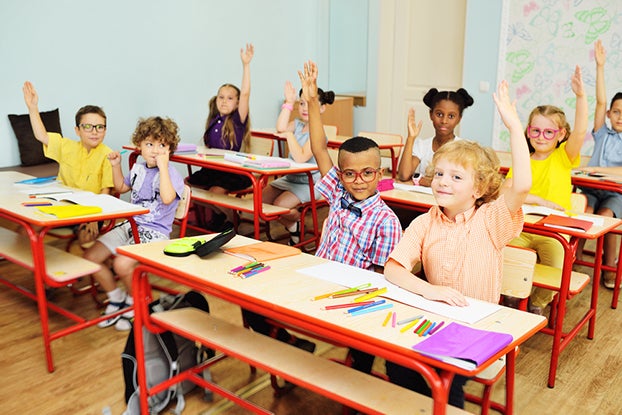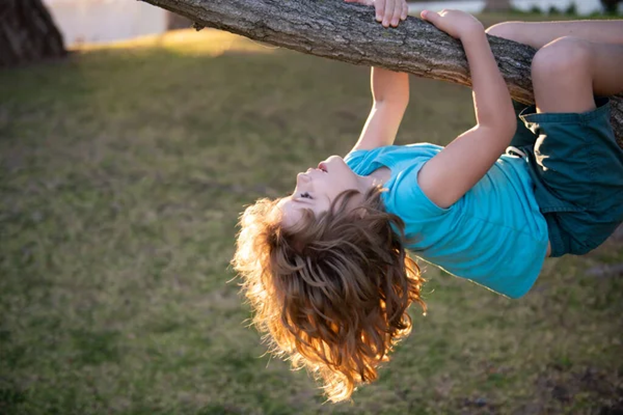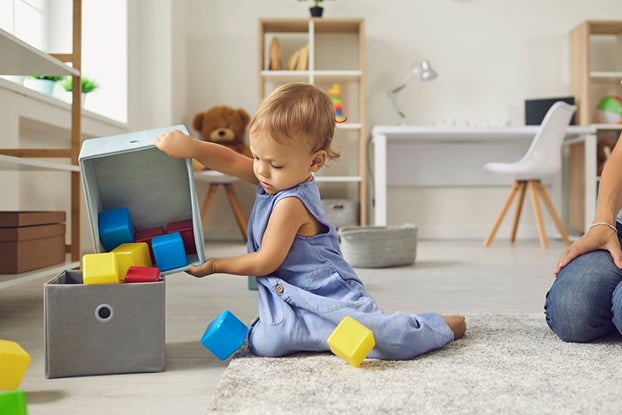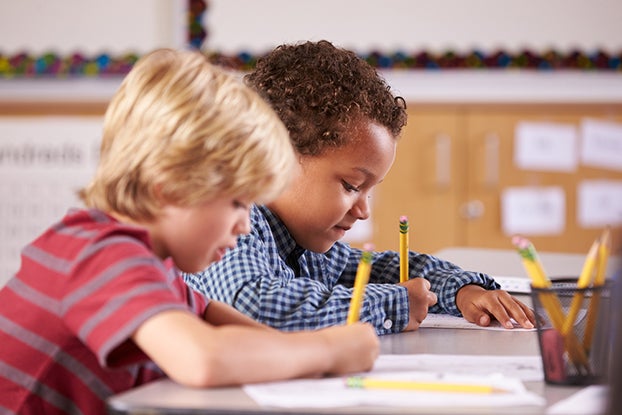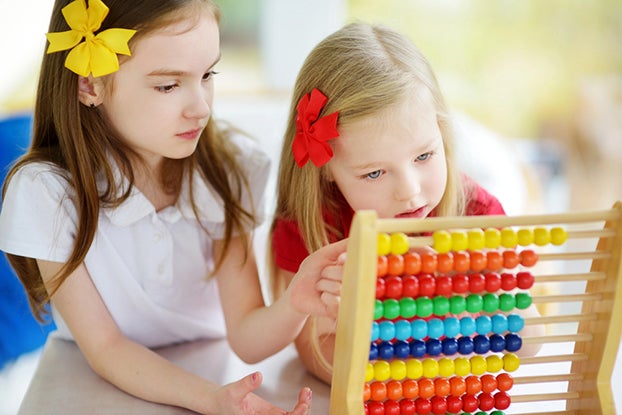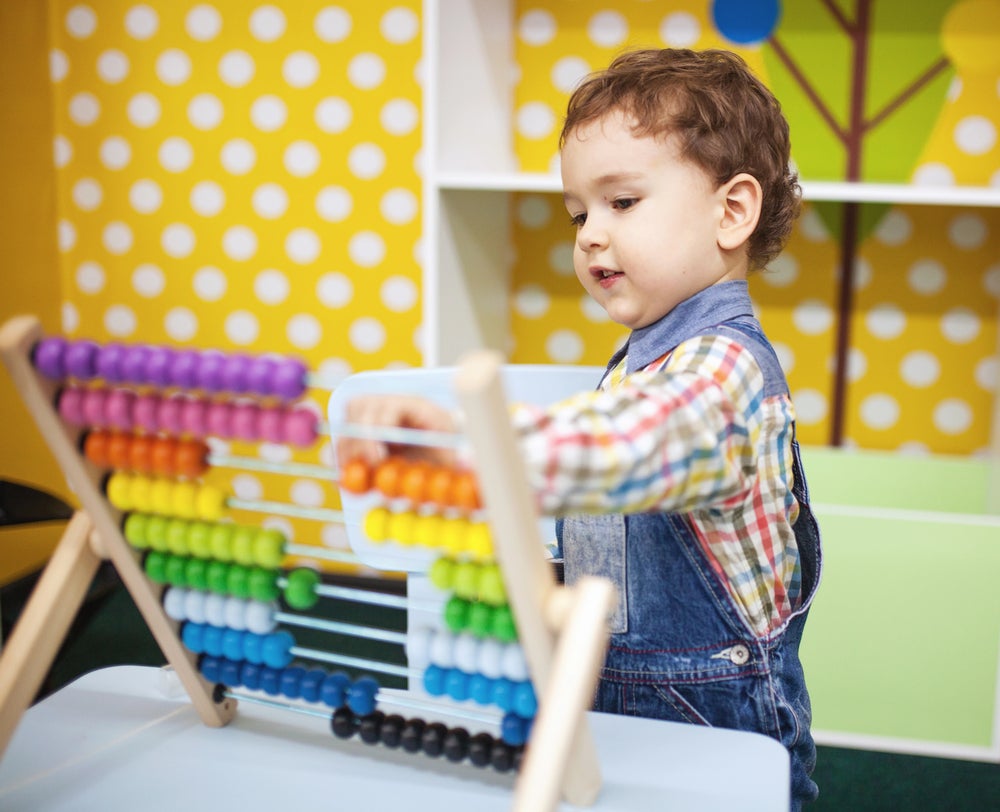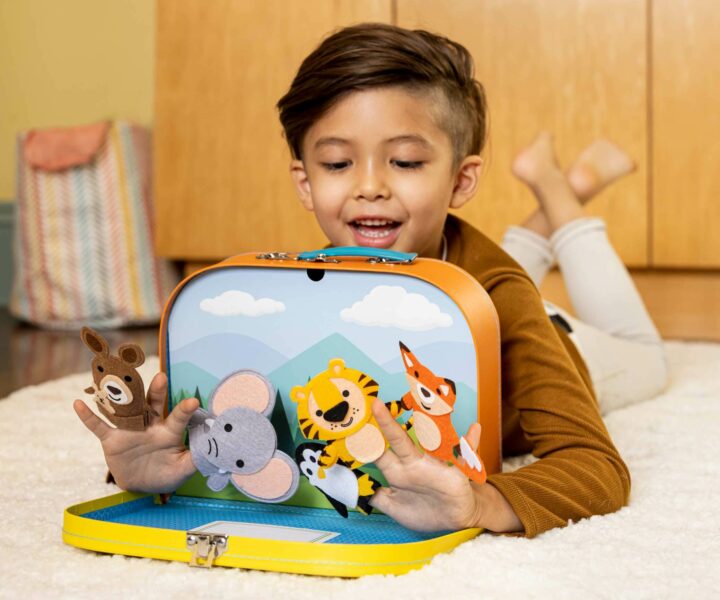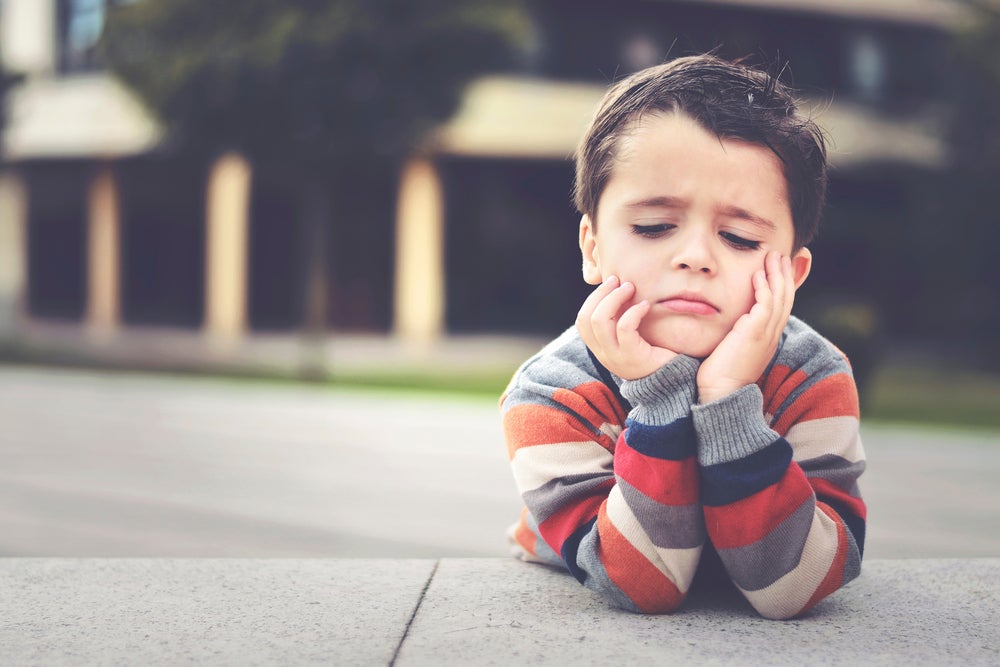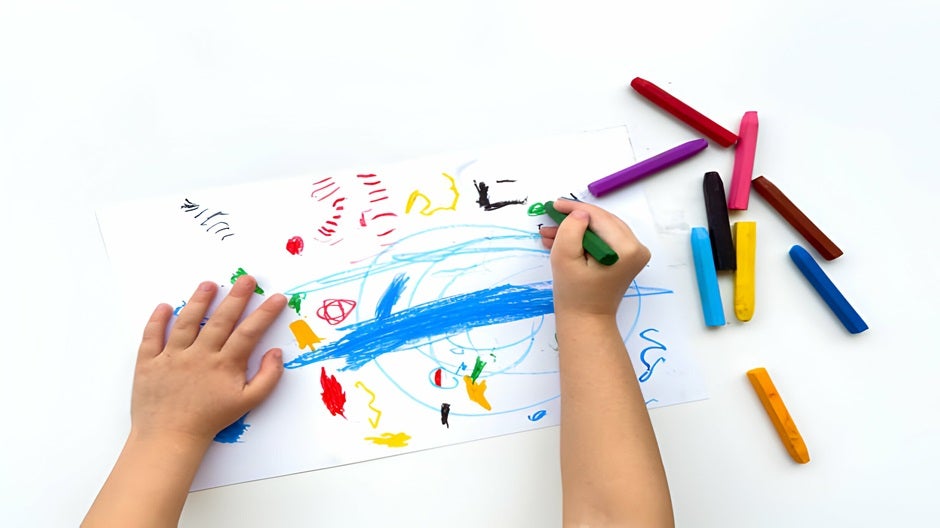Your child has mastered the alphabet; they can name the letters, they know the order of the letters, and they know the sounds that each letter represents. So, what’s next? Are they ready to start sounding out words?
The answer is: maybe!
Sounding out is the process of blending sounds into words. We use this process whenever we encounter a word we aren’t familiar with. Since it is second nature for us, it seems like this process of blending sounds to make words should be simple for kids who know the alphabet.
But this process actually involves specific skills that go beyond knowing the alphabet. Keep reading to see if your child is ready to start sounding out words.
Phonological awareness
Phonological awareness is a broad term, but put simply, it refers to the ability to identify and manipulate the sets of sounds that make up words. These sets are:
- Syllables: A part of a word that contains a single vowel sound and is pronounced as a unit. For example, lemon has two syllables: lem-on.
- Onsets: The sound at the start of a syllable. For example, c at the start of the word cat.
- Rimes: The sound at the end of a syllable that consists of a vowel and consonant. For example the at sound at the end of the word cat.
- Phonemes: The smallest unit of sound in speech. For example, the word cat is made up of 3 separate phonemes, /c/, /a/, and /t/.
How can I tell if my child has mastered phonological awareness?
When kids are clapping along to the syllables in nursery rhymes or making up rhymes of their own, they are showing phonological awareness. They need this skill before they can start sounding out the words they are reading.
If your child struggles to learn, or doesn’t enjoy, nursery rhymes, or if they have difficulty counting out syllables in words or noticing repetition or alliteration, they might need some support in phonological awareness.
What activities can I do to help my child develop their phonological awareness?
To check if your child can identify rhymes and to help them develop their phonological awareness, play games like the one included below. You can also practice this skill when you’re out and about using a version of I-Spy: simply say “I spy with my little eye, something that rhymes with _______. Another fun activity you can use to practice phonological awareness with your child is to make up silly rhymes together. If you want ideas for how you can help build your child’s phonological awareness, Understood.org has put together some simple activities that you can use.
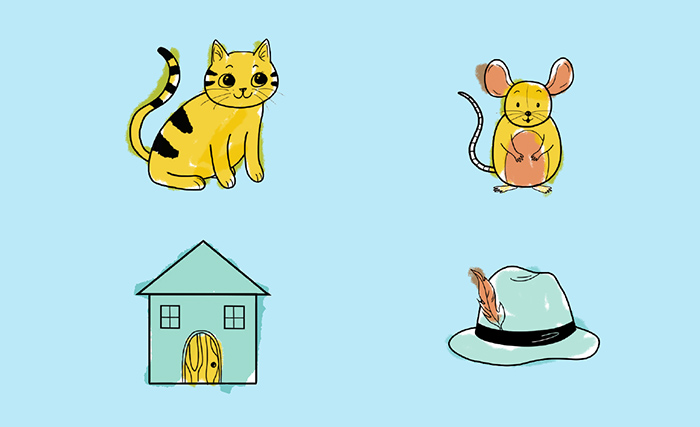
Phonemic Awareness
Phonemic Awareness is a phonological skill; it is the most sophisticated all the phonological skills that your child will develop. As mentioned earlier, a phoneme is the smallest unit of sound in spoken words. We create different words by adding, deleting, and rearranging phonemes. Before a child can start sounding out words, they need to have an awareness of how phonemes are used to create different words.
How can I tell if my child has the phonemic awareness required to start sounding out words?
Your child has the phonemic skills they need to start sounding out words if they can:
- Blend individual sounds: for example, you say the individual sounds /s/, /a/, /t/ and they know the words is sat.
- Unglue the sounds that make up a word: for example, they can answer the question “what three sounds make the word cat?”
- Change a word by changing a sound: for example, they know that when you replace the sound /c/ with the sound /m/, the word cat becomes mat.
- Change words by adding or removing sounds: for example, they know that when you remove the /s/ sound from the word slip, you get the lip.
How can I help my child develop their phonemic awareness?
Phonemic awareness activities are easy to incorporate into your day-to-day life. You can simply ask your child for the sounds that make up words that they are familiar with; for example, as you’re making your child’s lunch, ask them what sound the word sandwich starts with. If they say “ssss”, they’ve just shown phonemic awareness! For those quieter moments, games like the one below can also help build your child tune into the sounds that letters make within a word.
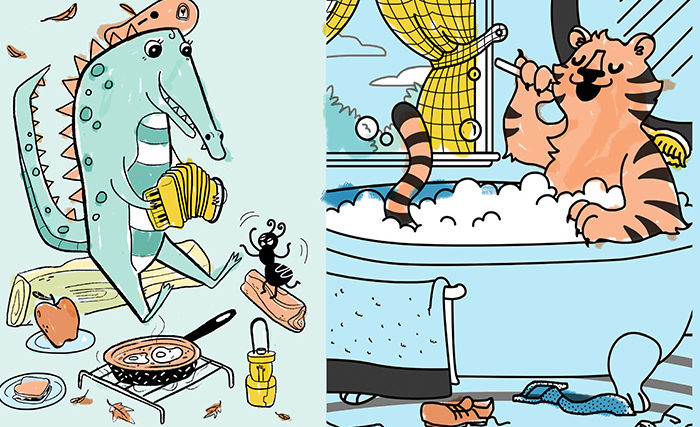
Letter-Sound Correspondences
Letter-sound correspondences simply refers to knowing which sounds go with which letters. If your child only knows some of the letters of the alphabet and their associated sounds, they can start sounding out simple words, but to avoid frustration and encourage success, we recommend checking that your child knows the letter-sound correspondences for all the letters in a word before you start explicitly trying to sound out that word.
There are a lot of fun ways to practice and check if your child has mastered letter-sound correspondences.. If you have a jumpy, full-of-energy kid on your hands, a fun game (that also burns off energy) is to draw out a grid, similar to a hopscotch grid, and write a letter on each tile. Then ask your child to jump to a lettered square by giving them the sound that is associated with that letter. For example, “jump to the first sound in the word donkey” or “ jump to the puh-sounding letter”. Games like the one below will also help your child practice letter-sound correspondence.
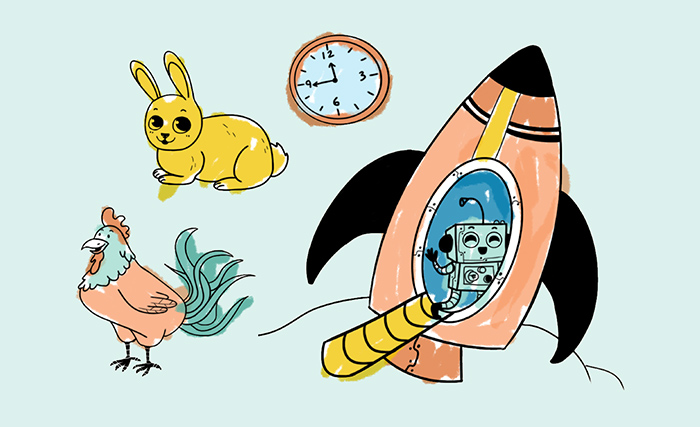
Working memory
When a child is sounding out and blending words, they are using a lot of different skills. Because of this, it isn’t uncommon for a child to correctly sound out each of the letters of the word and then forget what they’ve just sounded out. For example, a child can be working hard to identify the letter-sound correspondences of /c/, /a/, and /t/ and if they do not have a strong working memory, they might forget what they’ve identified and resort to guessing the word “cap”.
There are simple ways to work on your child’s working memory. A fun activity, that’s a classic for a reason, is Grandmother’s Trunk. “In my grandmother’s trunk I packed a….” to help with working memory get them to teach you a new skill they are learning. For example, if they are learning how to draw a square, get them to break down each step for you. Explaining their process helps them practice sorting and filing information in a way that makes it easier to recall. Another great way to help kids build their working memory is to talk about the stories, books, TV shows, and movies that you have been reading and watching together. You can model this by saying “my favorite part was _______” and ask what their favorite parts were.
Two fun games that help to build working memory and can be done without any preparation are:
- Grandmother’s Trunk: You might recognize this game from your childhood. It’s great for family car trips and can be made easier or harder with a few simple tweaks.
- It starts with the prompt “I’m going on a trip, and I need to pack my grandmother’s trunk.”
- Then each player takes it in turns to say “in grandmother’s trunk I packed a ________.”
- As each person adds items to the trunk, they have to remember the items that have already been added and the order they were added.
- In the traditional version of the game, you are “out” if you forget an item or if you say the list out of order. For younger players, you can make it easier by making it a list that you chant out together with kids taking it in turns to add to the list. If you want to practice letter sounds as well as working memory you can modify the game. In this version, Grandma is a bit more picky and only lets you pack items beginning with a certain letter.
The Instruction Game: This game is great as it burns off energy and helps your child build their gross motor skills, coordination, and their working memory.
- Give your child an instruction with only one step, like “jump three times.”
- If your child was able to do that, give then an instruction with two steps, for example “clap your hands and then spin in a circle.”
- After each round, add another step.
- You can make it extra tricky be getting them to sound to five before they begin!
Start sounding out words or keep practicing!
If your child shows mastery in phonological and phonemic awareness, a good grasp of letter-sound correspondences, and a developed working memory, they are ready to start sound sounding out words! This article has some great free printables that you can use to get started at home!
There are also kids who begin sound out without all of the phonemic work in place. It is common to start with simple words that are made up of consonant, vowel, consonant. For example, children often learn the vowel vowel, a, and the consonants p, t, m, n, and b early in their reading journey. If they have a grasp of the phonemes and the letter-sound correspondences for these letters, they can start sounding out words like pat, mat, nap, bat, tab amongst others.
If your child isn’t quite ready to sound out words, there are lots of fun ways you can help them prepare for this next step in their reading journey. Are your kids ready to start sounding out and blending words? Let us know in the comments below!
